Did you know that Thailand is at the forefront of smart factory technology, setting new global standards in manufacturing innovation? This jewel of Southeast Asia has embraced transformative tech that’s quietly reshaping its industrial landscape.
This shift is crucial now more than ever, as the global market demands speed, efficiency, and sustainability. With Thailand’s strategic advancements, the entire supply chain stands on the cusp of a technological revolution.
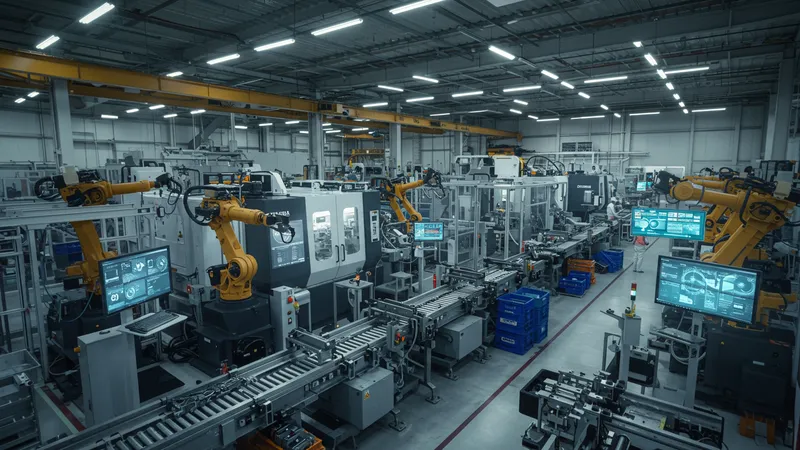
Surprisingly, many of these factories feature advanced AI and IoT systems that not only enhance productivity but also bring unprecedented precision to manufacturing processes. Imagine machines seamlessly talking to each other and predicting future faults. But that’s not even the wildest part…
Expectations are being defied as more Thai factories utilize blockchain technology for supply chain transparency. This innovation slashes delays and significantly boosts customer trust. How does this become a game-changer for stakeholders worldwide? What happens next shocked even the experts…
Thailand's factories are seeing a 40% increase in production efficiency thanks to AI advancements. By analyzing vast datasets, these systems optimize resource allocation and reduce energy consumption. Not only does this benefit the bottom line, but it also supports environmental sustainability. But there’s one more twist…
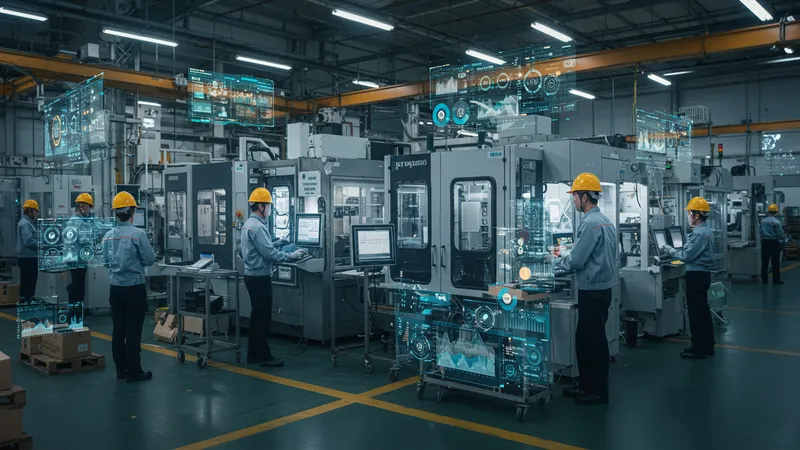
Many believed implementing AI would result in massive layoffs; surprisingly, it has created more jobs. The demand for skilled workers to manage and develop these AI systems is soaring, turning any potential downside into a beacon of economic growth. Still think technology’s a job killer?
Manufacturers previously spent extensive resources on quality control, but AI now offers real-time monitoring and predictive maintenance. This has not just cut costs but also significantly reduced defective products. What you read next might change how you see this forever.
AI-powered analytics have unveiled patterns in consumer behavior, helping manufacturers tailor products to meet ever-evolving demands. This proactive approach has given Thai manufacturers a competitive edge globally. But what will happen if this AI tide swamps? Let’s find out…
In Thailand, the Internet of Things (IoT) enables machines in smart factories to “talk” to each other and autonomously handle production intricacies. Machines seamlessly share data, adjusting to real-time changes, which minimizes downtimes and enhances output quality.
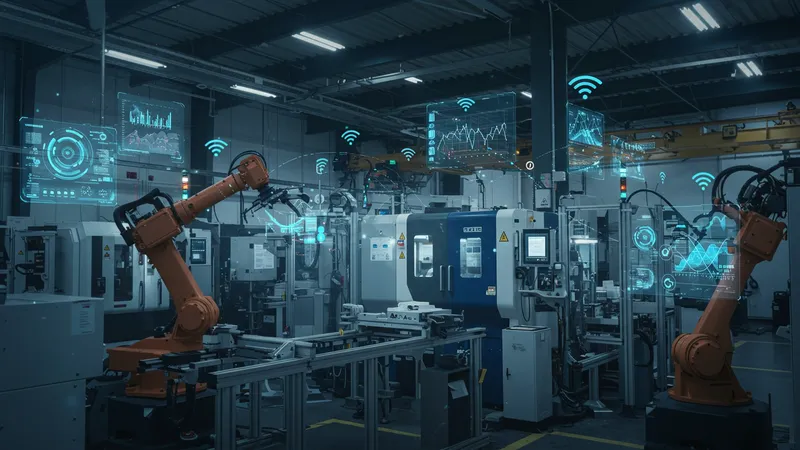
This interconnectedness fosters a production environment where agility and precision are paramount. With everything from sensors to smart devices networked, factory operations have never run smoother. But how deep does this rabbit hole go?
One striking revelation is predictive maintenance. By assessing machinery health in real time, factories preemptively schedule servicing, averting costly breakdowns. This approach drastically elongates equipment lifespan and reduces operational hiccups.
But it's not just internal innovation; IoT also aids in external collaborations. Suppliers and manufacturers exchange data to ensure resources are in sync with production needs. The synergy achieved is revolutionizing supply chain efficiency. What other surprises do Thai factories hold? Let’s dive deeper.
By leveraging blockchain, Thailand’s manufacturing sector is setting new standards in transparency and trust. This digital ledger technology allows for unchangeable recording of transactions, which is pivotal for supply chain credibility.

Suppliers, manufacturers, and end-users now access a secure record of transactions, ensuring authenticity and improving trust. The reduced potential for fraud or data manipulation is transforming stakeholders' confidence. But beyond trust, what’s the real scoop?
This technology can significantly cut transactional costs by bypassing traditional intermediaries. Not just saving money, it also speeds up the procurement and distribution processes, allowing manufacturers to respond swiftly to market demands.
While blockchain’s security is often hailed, its potential to revolutionize logistics is equally astounding. Imagine a world where shipment timelines are accurate to the minute. It’s more than just technology; it’s the future of manufacturing logistics. Yet, what lies on Thailand’s manufacturing horizon? More astonishing trends await.
The integration of robotics in Thai factories has redefined the efficiency of assembly lines. Advanced robotics decrease production times and enhance product consistency, propelling Thai-manufactured goods to new quality heights.
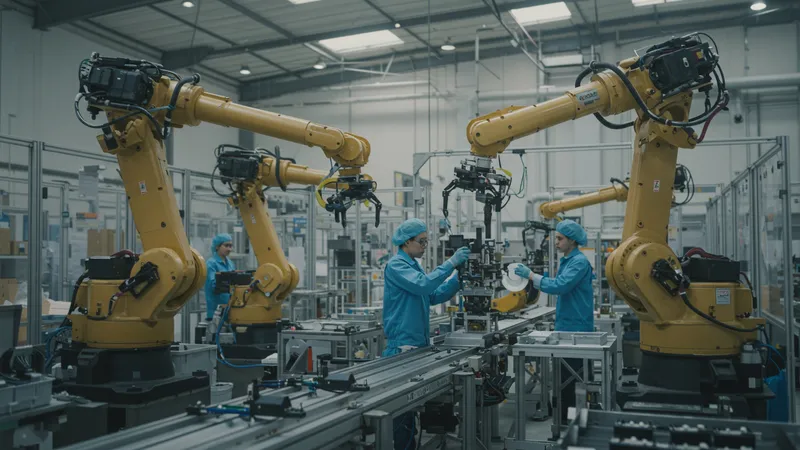
Despite concerns, these robotic systems haven’t replaced humans; rather, they’ve taken over mundane, repetitive tasks, freeing human workers to engage in more complex problem-solving activities. The synergy between human intelligence and robotic precision is creating an unparalleled production environment.
Enhanced precision is where robotics truly excels. With routines fine-tuned to a tee, product defects have plummeted, ensuring customers receive the highest quality. Could this be the moment Thai innovation overshadowed global powerhouses?
Moreover, with more factories adopting robotic automation, the initial cost is being offset by long-term gains in efficiency and product quality. The future is no longer about cutting costs but about maximizing returns and fostering innovation. But where does this technological journey lead next? Keep reading to explore deeper.
With digitization on the rise, Thailand’s manufacturers are emphasizing cybersecurity more than ever. This shift plays a crucial role in establishing a defense against digital threats that could compromise factory operations.
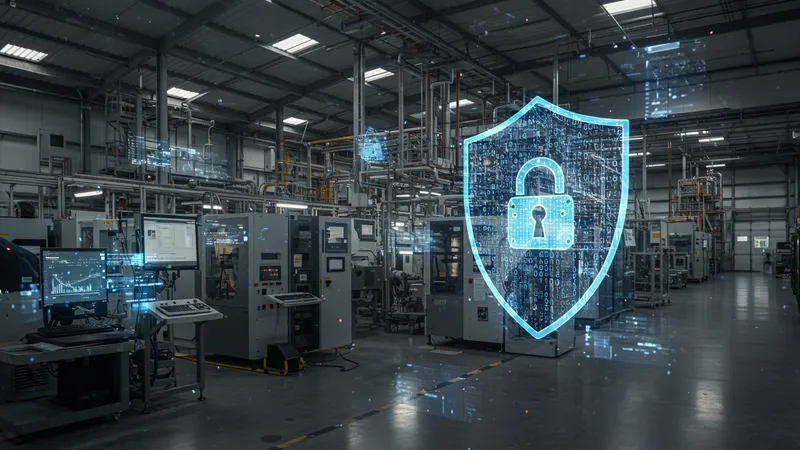
Cutting-edge cybersecurity measures ensure that sensitive manufacturing data remains protected from espionage and hacking attempts. This commitment to security boosts investor confidence and fosters a robust manufacturing environment. But is this enough to ward off every cyber threat?
The rise in cybersecurity threats has prompted an increased collaboration among tech firms and manufacturers to enhance digital fortifications. This collaboration has not only filled security gaps but also sparked new innovations in data protection.
Moreover, the adoption of secure platforms is setting industry benchmarks that other manufacturing giants are keen to replicate. Digital security is no longer an option but a necessity. But can robustness withstand the ever-evolving threat landscape? The technological saga continues.
Thailand is carving a niche for itself with eco-friendly manufacturing practices, aligning industrial efforts with global sustainability mandates. Green technology integration reduces carbon footprints, making factories more attractive to eco-conscious stakeholders.
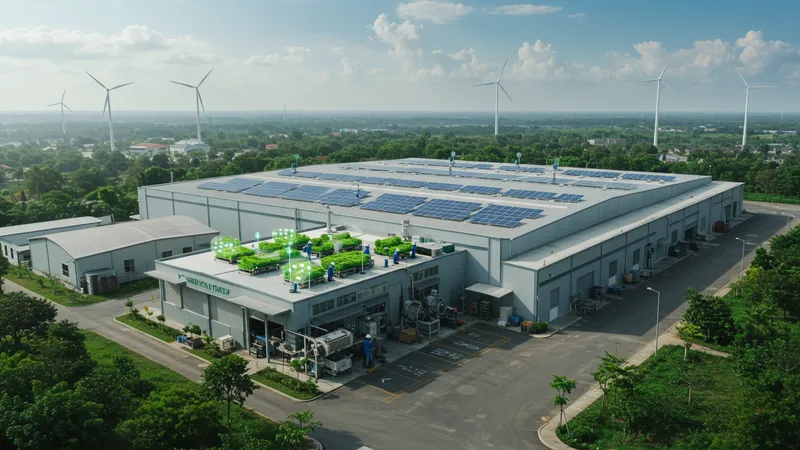
While initial investments in green tech might pose challenges, the long-term benefits are substantial, captivating more manufacturers to undergo this sustainable transition. But what lies beneath the surface of these emerald-green endeavors?
Incorporating solar energy and waste recycling, Thai factories showcase tremendous reductions in waste production and energy consumption. This revolution is not just about trendiness but a vital step toward global environmental responsibility.
Additionally, sustainability attracts international partnerships, enhancing Thailand’s position on the global stage. It’s not just about being green but about thriving in a competitive global market. But are sustainable practices enough to propel Thailand into a manufacturing frenzy? The suspense builds!
Government backing is pivotal in spearheading Thailand’s smart factory evolution. Favorable policies and incentives encourage businesses to embrace technology and drive the nation toward Industry 4.0.
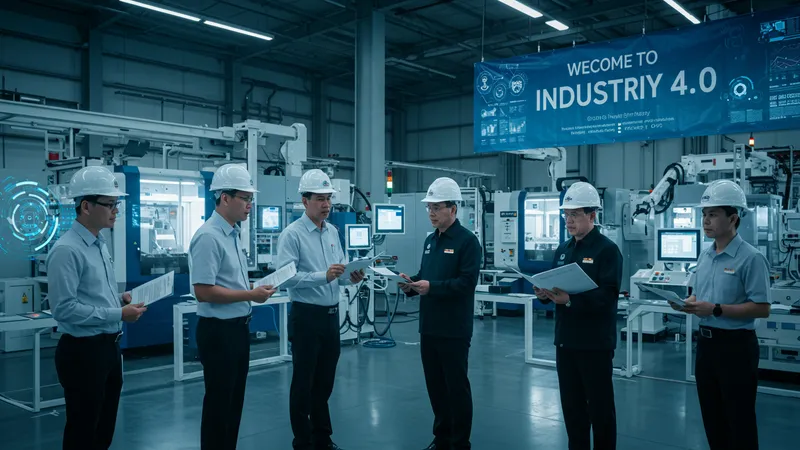
Subsidies and tax breaks entice businesses to invest in cutting-edge tech. With reduced investment risks, companies innovate freely, ensuring Thailand remains a technological trailblazer. What motivated these policies, you wonder?
The government’s foresight recognizes tech-led economic growth as crucial for national development. By fostering a robust ecosystem, they ensure that Thailand rapidly climbs the industrial ladder, grabbing every growth opportunity.
This governmental push towards digitization ensures that traditional sectors aren’t left behind. By embracing modernity, Thailand harnesses smart tech not just for manufacturing but to transform its entire economic landscape. Does this herald a new era of prosperity?
Thailand’s embrace of smart packaging technology enhances both the user experience and operational efficiency. Integrating tech within packaging helps consumers engage with products through QR codes and augmented reality.
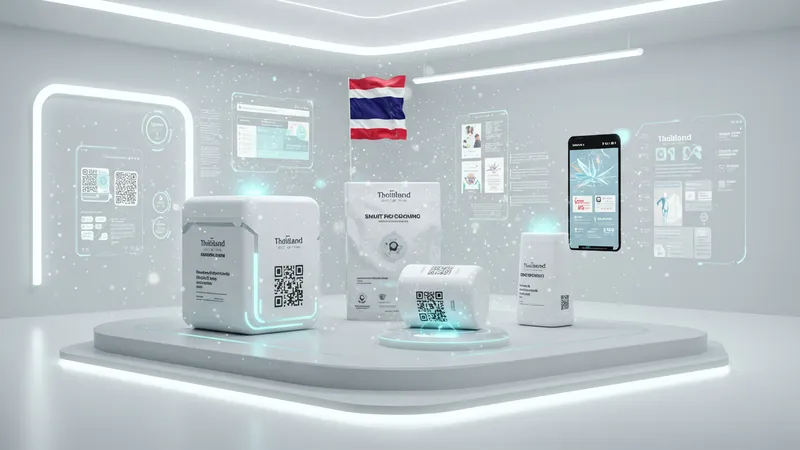
This leap forward provides customers with tailored experiences, laying the groundwork for brands to foster deeper consumer links. But what’s the larger advantage of these intelligent endeavors?
Smart packaging drastically reduces waste, aligning with Thailand’s broader sustainability goals. Efficient systems monitor stock and eliminate production surpluses, ensuring materials are used judiciously.
Moreover, technology helps trace products seamlessly through supply chains, further providing manufacturers with critical consumer insights. As brands build fidelities, how far can innovation stretch to keep attention in such turbulent times?
It seems baffling, but the economics of smart factory technology offer unexpected benefits in Thailand. Reduced operational costs and increased production speed sharply boost ROI.
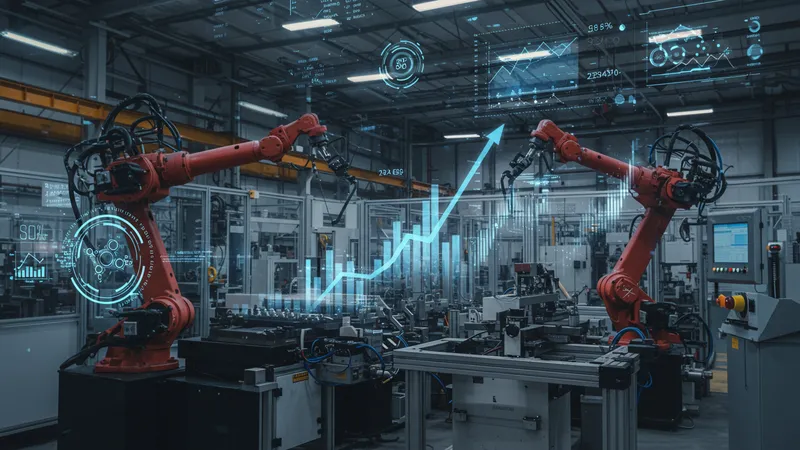
Despite requiring significant initial investment, the ensuing cost efficiencies and quality improvements outweigh these expenses. Can such economics revolutionize industry norms and expectations?
The financial payoff becomes evident as AI and robotics drastically reduce human error and material waste. These advancements ensure that Thai manufacturers remain sharp competitors in the global market.
Smart technologies push factories toward lean operations, creating a marketplace where value triumphs through innovation. But is this technological advantage sustainable in the long run? The final pieces of the jigsaw appear to be falling in place.
Training initiatives are pivotal to Thailand’s technological uptake, focusing on upskilling the workforce to effectively manage and utilize smart technologies.
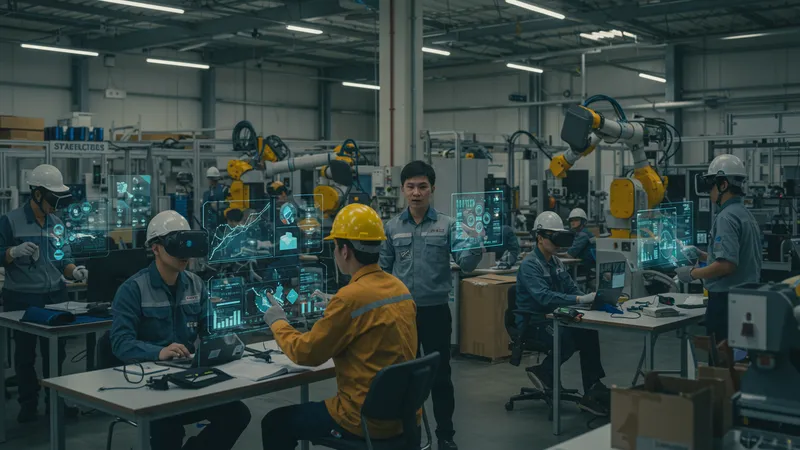
By investing in human capital, factories ensure their workforces remain agile and adaptable to technological shifts. This empowers individuals while ensuring manufacturing progression. But how urgently are these programs being received?
Upskilling benefits aren’t limited to technological adaptation. With broader skillsets, workers spurn stagnation and embrace innovation, driving the industry toward unprecedented growth.
Engaging with these programs enhances employee satisfaction and retention, creating a win-win situation for workers and employers alike. But can this labor evolution sustain its momentum as technology continues to shape possibilities? The stakes are high!
Predictive analytics is a game-changer, driving policy and operational efficiency within smart factories across Thailand. By forecasting market demands, manufacturers are fastidious in aligning production with real-time data.
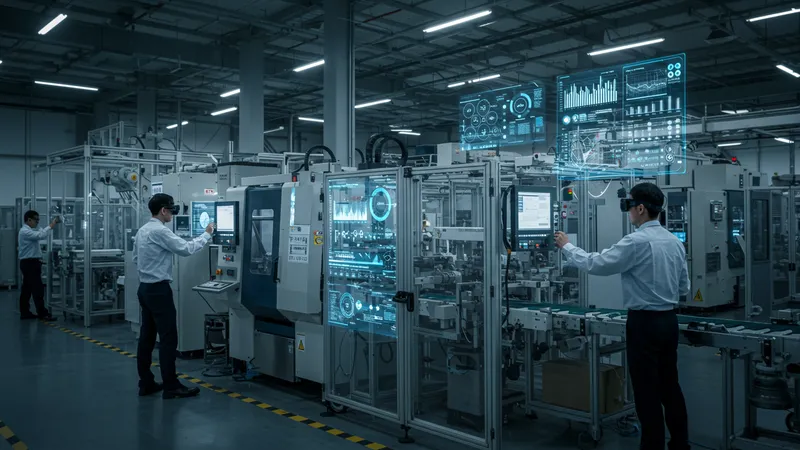
Utilizing predictive models, Thai factories remain nimble, adjusting operations to maximize productivity and minimize waste. These intelligent systems define how the future of manufacturing can work seamlessly. How do these predictions alter market dynamics?
One unique aspect is their proactive approach to maintenance, reducing unexpected downtimes. Predictive analytics ensures equipment reliability while maximizing operational uptime.
Moreover, supply chain predictions help synchronize logistics and resource allocations, boosting global competitiveness. Can manufacturers rely solely on predictions to secure their future? Insights await in the final reveal!
In summary, the transformation in Thailand’s manufacturing arena stands as a testament to how technology can reshape industries. From AI to robotics, IoT to blockchain, the journey is lined with innovation, progress, and opportunity.
As these technologies continue to evolve, Thailand propels itself as a dynamic industrial leader, setting an inspiring example for the world. The next chapter of manufacturing beckons. Are you ready to be part of it? Share this discovery and ignite a conversation that could change perspectives everywhere!